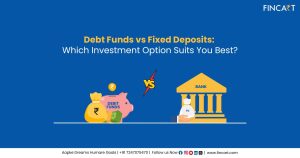“Rich Dad Poor Dad” by Robert Kiyosaki is a classic in the world of personal finance. The book shares the financial wisdom that Kiyosaki learned from his two “dads”: his biological father (the “Poor Dad”) and the father of his best friend (the “Rich Dad”). While both were successful in their own ways, their attitudes towards money were very different. Here are eight important money lessons from the book in Kiyosaki’s words:
1. The Rich Don’t Work for Money
“The poor and the middle-class work for money. The rich have money work for them.”
Kiyosaki’s “Rich Dad” taught him early on that most people spend their lives working for money, whether it’s through a job, a business, or even a side hustle. However, the truly wealthy understand that money should be working for them. Instead of just relying on a pay-check, they invest in assets that generate income, such as stocks, bonds, real estate, or businesses.
Reflect: Are you working for money, or is your money working for you?
2. It’s Not How Much Money You Make, But How Much Money You Keep
“It’s not how much money you make, but how much money you keep, how hard it works for you, and how many generations you keep it for.”
Many people believe that earning a high income is the key to becoming wealthy. However, Kiyosaki points out that it’s not about how much you make, but how much you keep. High-income earners can still be financially struggling if they don’t manage their money well. The key to building wealth is saving and investing wisely.
Tip: Track your expenses and find areas where you can save more.
3. The Importance of Financial Education
“A person can be highly educated, professionally successful, and financially illiterate.”
Kiyosaki emphasizes a critical gap in education, where many students graduate without essential financial skills. As a result, educated individuals often struggle financially despite professional success. This lack of financial aptitude—knowing how to manage, retain, and make money work for them—leads to misunderstandings about cash flow. They have learned how to work hard for money but not how to make their money work hard for them.
Reflect: Are there any financial concepts that you feel uncertain about and want to learn more?
4. The Difference Between Assets and Liabilities
“An asset puts money in my pocket. A liability takes money out of my pocket.”
Understanding the difference between assets and liabilities is fundamental to financial success. Kiyosaki explains that assets, like investments, generate income, while liabilities, like debt, take money away. The goal is to acquire more assets and reduce liabilities.
Tip: Make a list of your current assets and liabilities.
5. Mind Your Own Business
“The rich focus on their asset columns while everyone else focuses on their income statements.”
In Chapter three, Kiyosaki says: to become financially secure, a person needs to mind their own business. Your business revolves around your asset column, not your income column. ……. We hear so often: “I need a raise.” “If only I had a promotion.” “I am going back to school to get more training so I can get a better job.” “I am going to work overtime.” “Maybe I can get a second job.” In some circles, these are sensible ideas. But you are still not minding your own business. These ideas all still focus on the income column and will only help a person become more financially secure if the additional money is used to purchase income-generating assets.
Kiyosaki argues that focusing solely on the income column limits your financial potential. Instead, he encourages readers to “mind your own business” by focusing on the asset column—developing and acquiring assets that generate income.
Tip: Start building your asset column today.
6. Work to Learn, Not to Earn
“Job security meant everything to my educated dad. Learning meant everything to my rich dad.”
Kiyosaki advises people to choose jobs and careers that offer learning opportunities rather than just focusing on the pay-check. By gaining skills and knowledge, you can increase your earning potential and open up new opportunities for financial growth.
Reflect: Evaluate your current job. Are you learning new skills that can enhance your future earning potential?
7. Pay yourself first
One of the key principles Kiyosaki teaches is the importance of paying yourself first. This means prioritizing saving before spending on bills & discretionary items. By consistently setting aside a portion of your income for investments, you ensure that you are steadily building wealth.
Kiyosaki says:
“If you cannot get control of yourself, do not try to get rich. It makes no sense to invest, make money, and blow it. It is the lack of self-discipline that causes most lottery winners to go broke soon after winning millions. It is the lack of self-discipline that causes people who get a raise to immediately go out and buy a new car or take a cruise.”
Tip: Set up an automatic transfer to your savings each time you receive your pay-check.
8. Overcome the Fear of Losing Money
“Winners are not afraid of losing. But losers are. Failure is part of the process of success.”
Fear of losing money can hold you back from taking risks that might lead to financial success. Kiyosaki encourages readers to take calculated risks, learn from their mistakes, and not let the fear of failure prevent them from pursuing wealth-building opportunities.
Reflect: What financial risks have you avoided due to fear? Start small.
9. Investing is not Gambling
“It is not gambling if you know what you’re doing. It is gambling if you’re just throwing money into a deal and praying.”
Kiyosaki makes an important distinction between informed investing and gambling. He highlights that successful investing requires knowledge, research, and strategy, rather than mere luck. When you understand the market, analyse potential risks and rewards, and make informed decisions, you are engaging in a calculated investment rather than gambling.
Tip: Before making any investment, do your research.
Ready to grow your wealth?
Partner with Fincart for expert investment planning and make your money work for you.
Way forward!
By reflecting on these lessons and taking actionable steps, you can start building a strong financial foundation. Whether you’re just starting your financial journey or looking to refine your strategies, the wisdom from “Rich Dad Poor Dad” offers valuable guidance for achieving financial independence.




